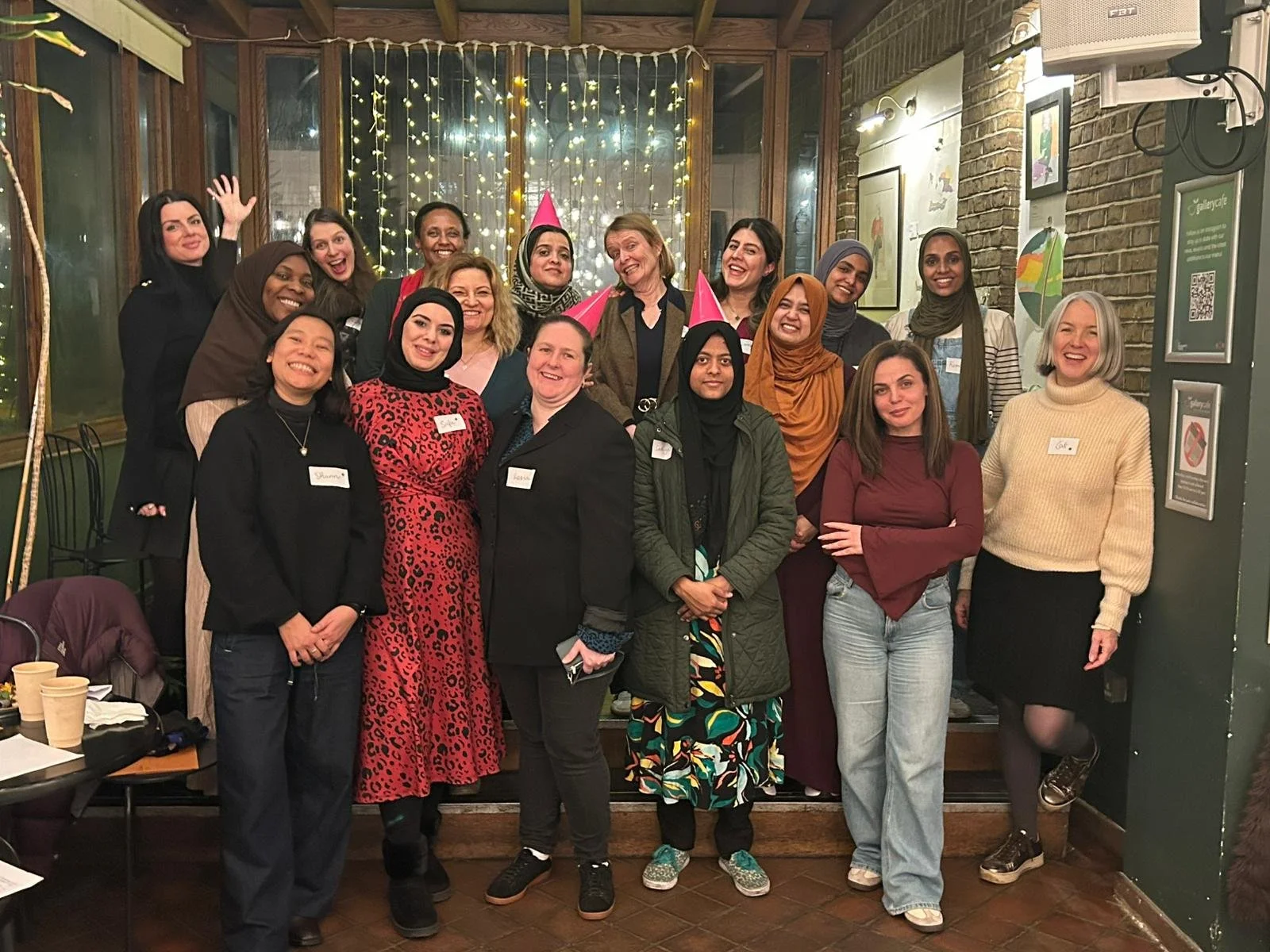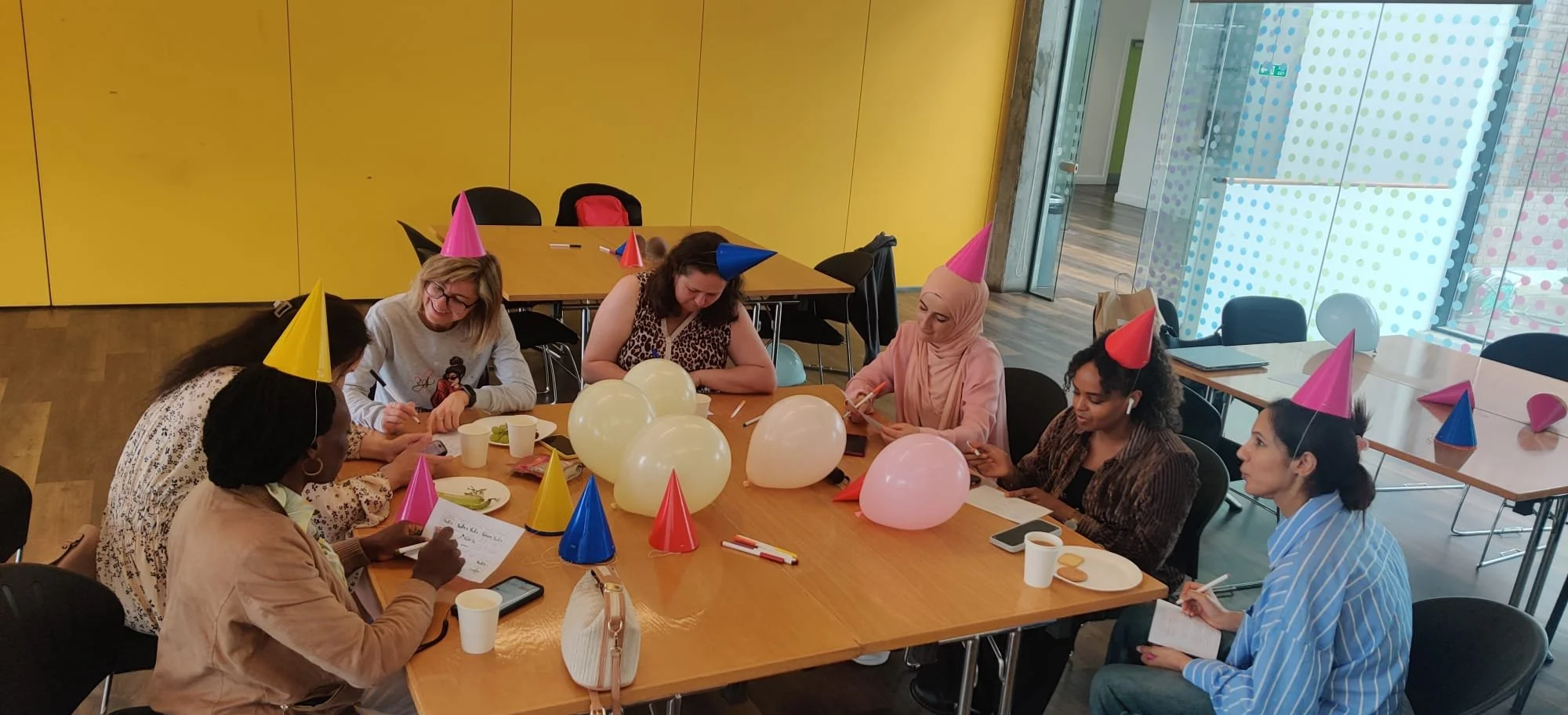Call to action: what we can all do to support the human rights of those affected in the Middle East and globally
Today, we are sharing a statement about the importance of accountability under international law - and what we all can do, as UK residents and citizens, to demand the UK uphold its international legal duties.
This statement from Routes comes in a week, in which we have seen further attacks on civilians in the North of the Gaza Strip, whilst there has been an unprecedented forced entry into a UN peacekeeping base in South Lebanon. The incessant bombing also creates further risks for those who survive: the release of asbestos is cancer-inducing and will have long-lasting impacts on civilians for years to come.
At Routes, we feel the impact of the further escalation in Gaza, Lebanon and the wider Levant region in our community. We have also seen a lack of accountability under international law, including the Convention on the Prevention and Punishment of the Crime of Genocide, which also has a direct implication for the UK Government.
We call for an immediate ceasefire in the Middle East and an end to the UK’s complicity in the violence through arms sales and diplomatic support.
We are committed to standing in active solidarity with everyone experiencing violence and displacement. We recognise that calls for a ceasefire, calls for accountability under international law, and calls for refugee rights are all part of the same picture.
Whilst our statement today has a focus on the Levant region, we recognise that calls for non-discrimination and equal application of the law should be for everyone. We keep in our thoughts everyone in our community who are affected by events in Sudan, Ukraine and other regions of the world. No-one is free until everyone is free - and we’ll be sharing resources that are relevant for supporting safety for communities in the Middle East and beyond.
We invite everyone reading this to be part of this commitment. Please find below a few resources and ways to engage:
Join the workshop ‘How to talk about Palestine’ organised by Shado Mag and Makan Rights, on Wednesday 23rd October, from 7:30 - 9 PM on Zoom.
Message your Member of Parliament and the UK Foreign Office. You can do this if you are a resident in the UK, with a UK postcode. Many organisations have templates available, that you can use to share your concerns and calls to action.
Attend national demonstrations happening in your area. Follow Palestine Solidarity Campaign to find out when and where they are happening. You can also borrow a banner from London Protest Banner Library to take to the marches.
Keep educating yourself, by following organisations and individuals who are sharing relevant updates. A good place to start might be this post from Give Your Best, or the British data journalist, writer and illustrator Mona Chalabi, who shares important infographics about the situation in Gaza, the Levant, Sudan and more.
See if there are local campaigns that you can support. Change is built by millions of people acting simultaneously at lots of different levels - locally, nationally and globally.
Maintain grounding practices that allow you to stay engaged. Those of us who are not directly affected or from affected communities need to ensure that we do not get numb by the current news cycle. Instead, we need support structures so that we can continue to engage and keep speaking out for human rights and human dignity.
Uplift the work from organisations such as Healing Justice London and Shubbak Festival, who are organising support spaces for affected communities, as well as embodied rage spaces, for material arts to be used to process rage in community.
If this is possible for you, please support people who are directly affected via direct aid initiatives, or by supporting relief organisations to do their work.
We want to live in a world that doesn’t force people from their homes, but will also continue to fight for the rights and dignity of displaced people worldwide. We hope you join us in this commitment, in a volatile time where it is important to speak up.
If you are safe and able to do so, please make sure the current news is part of your daily conversations - with work colleagues, in your local communities, and in other groups where you hold power or influence.
In this important time for human rights, we need to work together to keep the UK Government, and other actors, accountable for their duties under international law.
There is not one way of getting engaged - there are many ways to do so, from political to creative - and we need all of your talents, as we pull our resources together for a better world, in which people can live in safety and free from violence.



